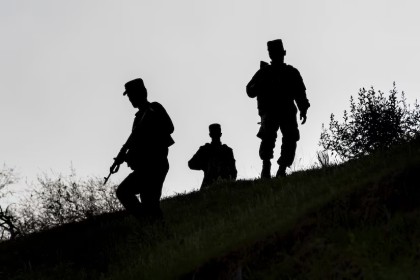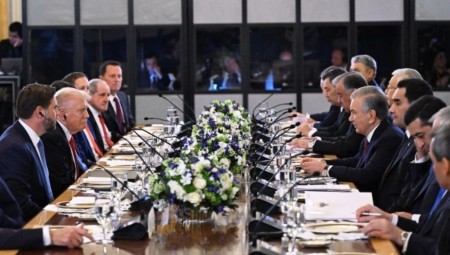The US Commission on International Religious Freedom (USCIRF) has removed Uzbekistan from its list of "countries of particular concern." In a report released on April 28, the commission recommended that the US State Department add Uzbekistan to its Special watch list.
In 2019, religious freedom conditions in Uzbekistan trended positively, the report said. The government took notable steps to address some of the long-standing and significant religious freedom concerns that had led USCIRF to recommend Uzbekistan’s designation as a “country of particular concern,” or CPC, under the International Religious Freedom Act (IRFA), every year since 2005, including in April 2019.
Throughout 2019, the government by and large successfully enforced a ban on law enforcement authorities raiding and harassing religious communities, and in August announced the closure of the notorious Jasliq Prison, a course of action USCIRF had recommended. The government also continued to engage closely with the United States and other international partners to improve religious freedom. However, some issues saw little to no improvement or experienced backsliding. Thousands of religious prisoners—mostly observant Muslims—are estimated to remain behind bars on fabricated charges of “religious extremism” or membership in a banned religious group.
Many religious prisoners subjected to multiple arbitrary extensions of their prison terms under the previous government continued to serve those sentences, and claimed to have experienced torture, which remains widespread and routine. Some incidents throughout 2019 reinforced concerns that the government continued to restrict Muslim religious practice not in line with the state-prescribed interpretation of Islam. The government opposes Muslims growing beards or wearing hijabs as expressions of their religious beliefs, and both local government and law enforcement officials singled out and violated the rights of visibly religious Muslims.
In separate episodes in the cities of Tashkent and Namangan, authorities rounded up and forced more than 100 men to shave their beards. Other government officials embarked on a campaign to actively discourage girls and women from wearing the hijab, with some authorities reportedly compiling lists of hijab-wearing girls and women for monitoring purposes. In a number of instances, Fergana Regional Governor Shuhrat Ganiev expressed open hostility toward Muslims, including by threatening subordinates who tolerated the hijab.
The Uzbek government also failed during 2019 to fulfill its May 2018 pledge to revise the restrictive 1998 Law on Freedom of Conscience and Religious Organizations (1998 religion law), which continues to regulate and restrict all religious activity.
The Ministry of Justice and other government officials continued to work on a revised draft of the law and sought some international feedback on their changes. Throughout the year, government officials stated that many of the law’s most demanding and burdensome provisions would remain, including the mandatory registration of religious groups; the requirement that religious groups secure the approval of the mahalla (local community) to register; state review and approval of all religious literature; and bans on proselytism, missionary activity, the private teaching of religion, and any unregistered or unapproved religious activity.
After the reporting period, however, government officials informed USCIRF that they intended to remove the mahalla from the registration process. Although eight minority communities were registered during the year, many religious minorities, such as some Catholics, Jehovah’s Witnesses, and Protestants, remained unable to register because of their small numbers or local opposition.















